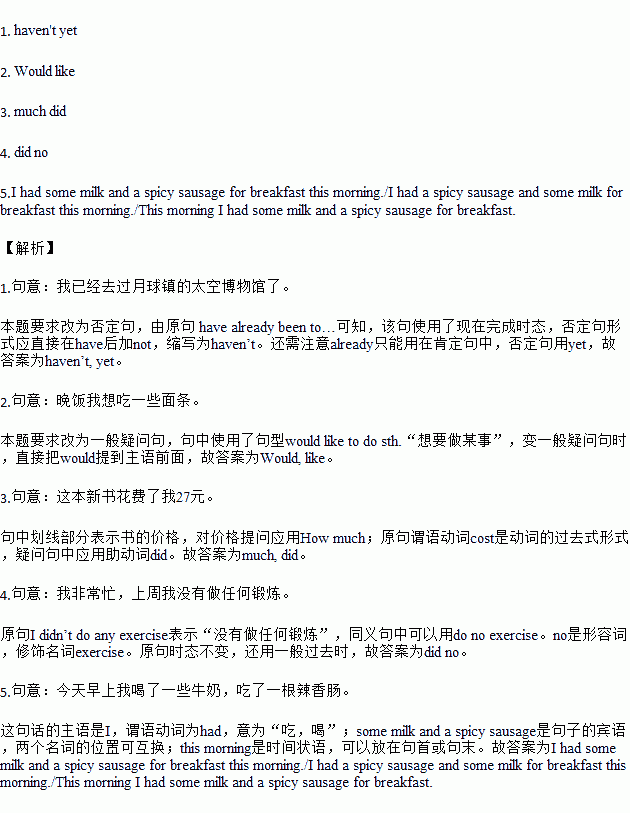题目内容
Rewrite the following sentences as required. (根据要求改写句子,每空格限填一词。)
1.I have already been to Space Museum in Moon Town.(改为否定句)
I ____________ been to Space Museum in Moon Town ____________.
2.I’d like to have some noodles for dinner.(改为一般疑问句)
____________ you ____________ to have some noodles for dinner?
3.This new book cost me 27 yuan.(对划线部分提问)
How ____________ ____________ this new book cost you?
4.I was very busy and I didn’t do any exercise last week.(保持句意不变)
I was very busy and I ____________ ____________ exercise last week.
5.I, some milk, and, had, for breakfast, this morning, a spicy sausage (连词成句)
__________________________________________________________________
练习册系列答案
相关题目

